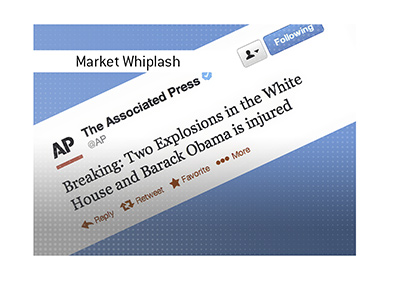Credit Downgrade for United States Increasingly Likely
 Despite the increasingly tense situation in Washington, a debt ceiling agreement is still likely to be agreed upon in the final hours before the August 2nd deadline. In the end, neither side wants to be seen by American voters as being the reason that the country defaulted on its debt for the first time in its history.
Despite the increasingly tense situation in Washington, a debt ceiling agreement is still likely to be agreed upon in the final hours before the August 2nd deadline. In the end, neither side wants to be seen by American voters as being the reason that the country defaulted on its debt for the first time in its history. That's the good news.
The bad news? A last second compromise between the Democrats and Republicans is unlikely to stave off a downgrade of the nation's pristine AAA credit rating.
According to this Associated Press article, market analysts and investors are becomingly increasingly worried about a downgrade.
The problem? Some credit rating agencies have backed themselves into a corner due to their public statements regarding the deficit situation in the United States.
For instance, Standard & Poor's has already gone on record as stating that unless the eventual debt ceiling/deficit reduction agreement between Dems and Republicans produces "at least" $4 trillion in budget cuts over the next decade, the country's credit rating could be cut within 90 days.
There is practically no chance of a deal that produces $4 trillion in cuts being passed, which means that there is a very good chance that Standard & Poor's could downgrade America's AAA credit rating.
According to this article on FoxBusiness.com, Obama administration officials have been privately warning of a credit downgrade "for no other reason than S&P and Moody's have to cover (themselves) since they've been speaking out on the debt cap so much."
For their part, Moody's has gone on record as stating that unless "substantial and credible agreement is achieved on a budget that includes long-term deficit reduction", the company's outlook on America's AAA credit rating would change from "stable" to "negative".
--
In short - even if a debt ceiling agreement is reached, the United States is in very real danger of losing its AAA credit rating, which would be both embarrassing and very costly (to the federal government and to consumers).
Filed under: General Knowledge



